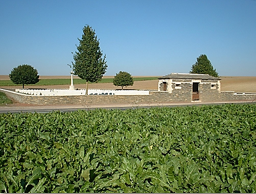Our image :
The Braithwaite family, Colonel William Braithwaite, (wearing cap at rear), William junior on right with extended family and motor car, a 30 h.p. Hotchkiss imported from France, circa 1911. Braithwaite senior took a keen interest in new invention of the time. the motor car, competing along with another local, the nurseryman James Railton in the reliability trial to Sydney in January, 1914. William junior and a son-in-law later established a hire car service that ultimately developed into today’s Preston Motors.
Captain William Braithwaite was perhaps one of the more privileged of the local volunteers, but privilege meant little during the hostilities of the Great War
Many of Northcote and Preston’s civic leaders suffered losses during the Great War, none less so than Lt. Colonel William Braithwaite of the Volunteer Forces, and a prominent tanner and local councillor in Preston.
Braithwaite junior had a somewhat privileged background compared to most in the district, having been educated at Melbourne Grammar and Melbourne University after humble beginnings at South Preston State School.
He embarked as a Second Lieutenant and was promoted to Captain after being awarded the Military Cross in May 1917 during an action at Bullecourt .
Braithwaite was killed on 3 October, 1918 near St. Quentin, France.
Ironically, Braithwaite senior died in a London Hospital early in August 1922 when on a visit to Europe to visit his son’s grave. Braithwaite himself had been to the grave site in 1920, but his wife Louisa was too upset to make the earlier trip, and the second voyage was undertaken on her behalf.
He had been prominent in the Volunteer Forces since around 1886 when he was a co-founder of the Preston Rifle Club, later rising through the ranks of the Victorian Mounted Rifles to the point where he was being considered to lead the early contingent of Victorian troops to South Africa in 1899 after the outbreak of the Boer War.
Wiser heads prevailed, however – Braithwaite was 56 years of age and had six children under 15, and given his extensive experience with the tannery, he was placed in charge of the vital supply of saddles and other leather accessories to the military (which after a brigade of 25o infantry or half of the First Contingent became exclusively mounted troops).

Link to the history of William McCarthy Braithwaite
Link to ozsportshistory.com downloads for WW1
